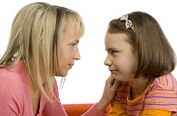Speech and Language Therapy Department
 |
|
 |
|
|
Mary Scullion
Joint Head of Speech
and Language
|
|
Sarah Burns
Joint Head of Speech
and Language
|
|
Speech and Language Therapists (SLTs) are qualified professionals who help clients that present with a variety of difficulties in the areas of speech, language and communication.
We work closely with the young person and their family to establish a plan to help them communicate as effectively as possible. SLTs at Lucena Clinic CAMHs are part of a vibrant and dynamic department who work on multi-disciplinary teams in each of our locations.
Children and young people with emotional and/or behavioural difficulties can often present with speech, language or communication difficulties in one or more of the following areas:
- Speech sounds (difficulty making sounds)
- Language (understanding what words mean, how to make new words and put words into sentences)
- Social communication/ Pragmatic language (using language socially and in conversation)
- Fluency (stammering)
- Voice (loss of voice or hoarseness)
At Lucena Clinic CAMHs, a young person is usually referred for assessment by members of the multidisciplinary team if there are concerns about their speech, language or communication skills. Generally, an assessment is carried out over a few sessions.
The assessment process includes discussing the parent’s and young person’s concerns with them and asking about how
the young person is communicating in everyday situations. Assessment findings often contribute to the overall diagnosis that a young person receives from the multi-disciplinary team.
Depending on the young person’s age, his/her communication skills may be assessed through:
- Conversation
- Observation
- Standardised tests
- Report from parents/young person themselves/school
- Questionnaires/checklists
After assessment, if further speech and language therapy intervention is indicated, the timing and nature of this will be considered in conjunction with the young person and their family and in the context of the overall multi-disciplinary treatment plan.
Speech and Language Therapy intervention has many forms and can include:
- Working with and through parents
- Liaison with school
- Group intervention
- Individual intervention
If you have any questions/queries, please contact the Speech and Language Therapist at your local Lucena Clinic CAMHs and we will do our best to help.










